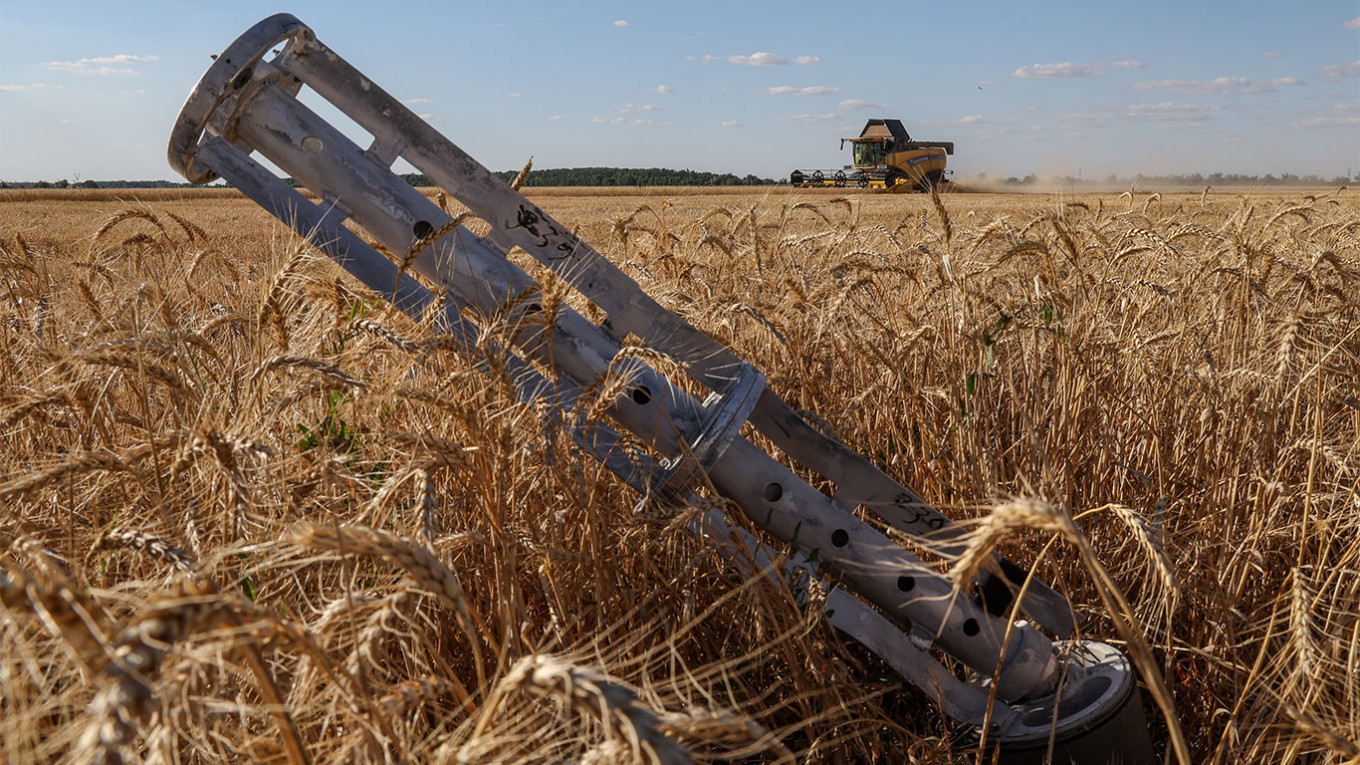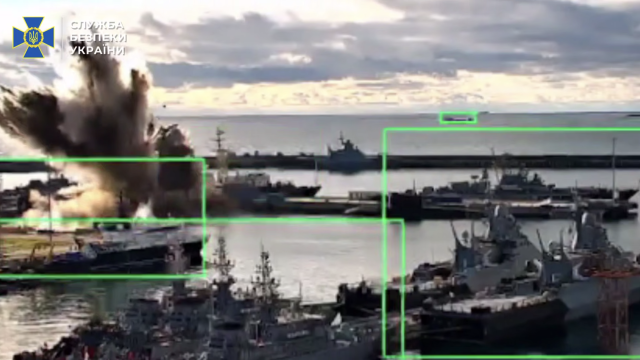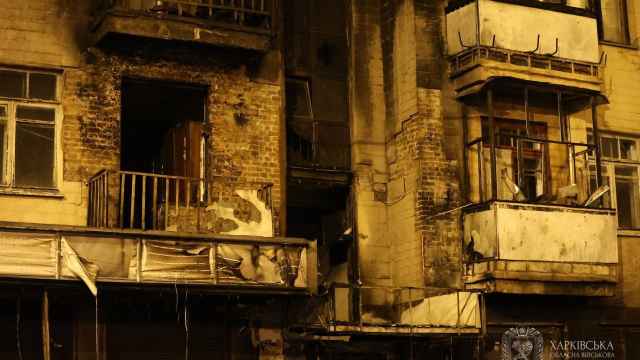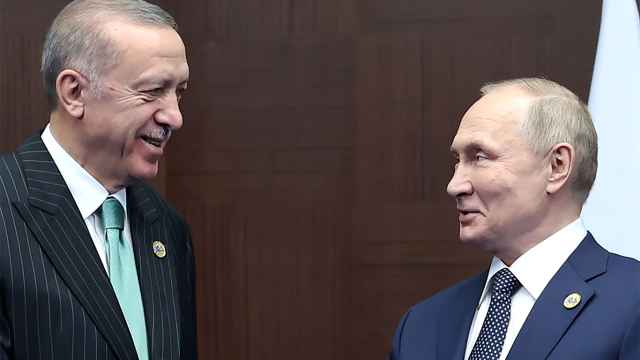Russia is doubling down in its efforts to block Ukrainian grain exports and maximize damage to Kyiv’s profits one week after it pulled out of a landmark grain deal securing Ukrainian grain exports.
In addition to its systematic attacks on three Ukrainian ports on the Black Sea near Odesa in recent days, Moscow for the first time targeted Ukrainian terminals on the Danube River on Monday night.
In hampering Ukraine's grain exports, Russia hopes to cut into Ukrainian budget revenues and significantly raise prices on the world market — and reap the benefits for itself, independent experts told The Moscow Times.
"The strikes on port infrastructure are a [form of] pressure on Kyiv and on transportation companies. The Kremlin is trying to cause maximum damage to Ukraine — to deprive it of solid financial revenues and seize Ukrainian markets itself," a former European Union official told The Moscow Times on condition of anonymity.
Stock markets reacted with sharp price rallies immediately after Russia pulled out of the deal and threatened to strike ships heading to Ukrainian ports, as well as after an early Monday surprise drone attack on Ukrainian port infrastructure on the Danube, which runs through NATO member Romania.
In the Turkey and UN-mediated deal agreed in July 2022, Russia agreed to allow the safe passage of grain and fertilizer exports from Odesa and nearby ports.
In exchange, the UN signed a memorandum with Moscow — one of the world’s largest food producers — allowing it to supply food and fertilizers to the world market despite international sanctions and agreeing to reconnect its agricultural bank Rosselkhozbank to the SWIFT payments system.
Since it was agreed last July, the grain deal had allowed for the export of almost 33 million metric tons of food through Ukrainian ports, the UN reported.
However, Russian President Vladimir Putin and Russian diplomats repeatedly complained that Moscow’s terms were never met.
Before Moscow’s announcement that it was pulling out of the deal, UN Secretary-General Antonio Guterres made a last-ditch effort to save it, promising in a letter to Putin that he would help reconnect Rosselkhozbank to SWIFT.
Gutteres also attempted to persuade the EU to fulfill at least some of the terms of the memorandum with Russia — but Brussels refused, the former EU official told The Moscow Times.
"The EU said 'no way.' Because in terms of sanctions, it would be a step backward. Our principles are more important to us than what will happen with Ukrainian grain," the source said, citing internal EU discussions.
The last straw came last week, when Russia’s bridge to annexed Crimea was damaged in a deadly drone strike.
"When the Kerch bridge was blown up, there was no chance of keeping the deal alive," the EU source said.
The deal had been extended several times over the past year, likely thanks to Russia-Turkey bilateral relations as well as personal arrangements between Putin and Turkish counterpart Recep Tayyip Erdogan.
Amid Russia’s growing international isolation, the balance of influence in relations between Moscow and Ankara has increasingly shifted in Turkey's favor. Trade turnover between the countries increased by 80% in 2022, as Turkey remained the only NATO member to refrain from sanctioning Russia or closing its airspace to Russian airlines.
Given his cordial relations with both Moscow and Kyiv, Erdogan is positioning himself as one of the main mediators between the two, Ruslan Suleymanov, an expert on the Middle East, told the Moscow Times.
As a result, Erdogan is now playing an active role in Nagorno-Karabakh and pressuring Moscow in Syria — and can afford to hand over fighters from Ukraine’s Azov Battalion to Kyiv despite Moscow’s protests.
The grain deal was negotiated at a time when Moscow had not yet suffered as many setbacks in Ukraine as it has today. As time went on, Russia’s grievances with the deal grew louder — but the Kremlin continued to extend it in an effort to appease Erdogan, Suleymanov said.
"One of the extensions of the deal [was made] just before the second round of presidential elections in Turkey … Of course, the Kremlin deferred to the Turkish president" to help him appear important on the world stage, Suleymanov said.
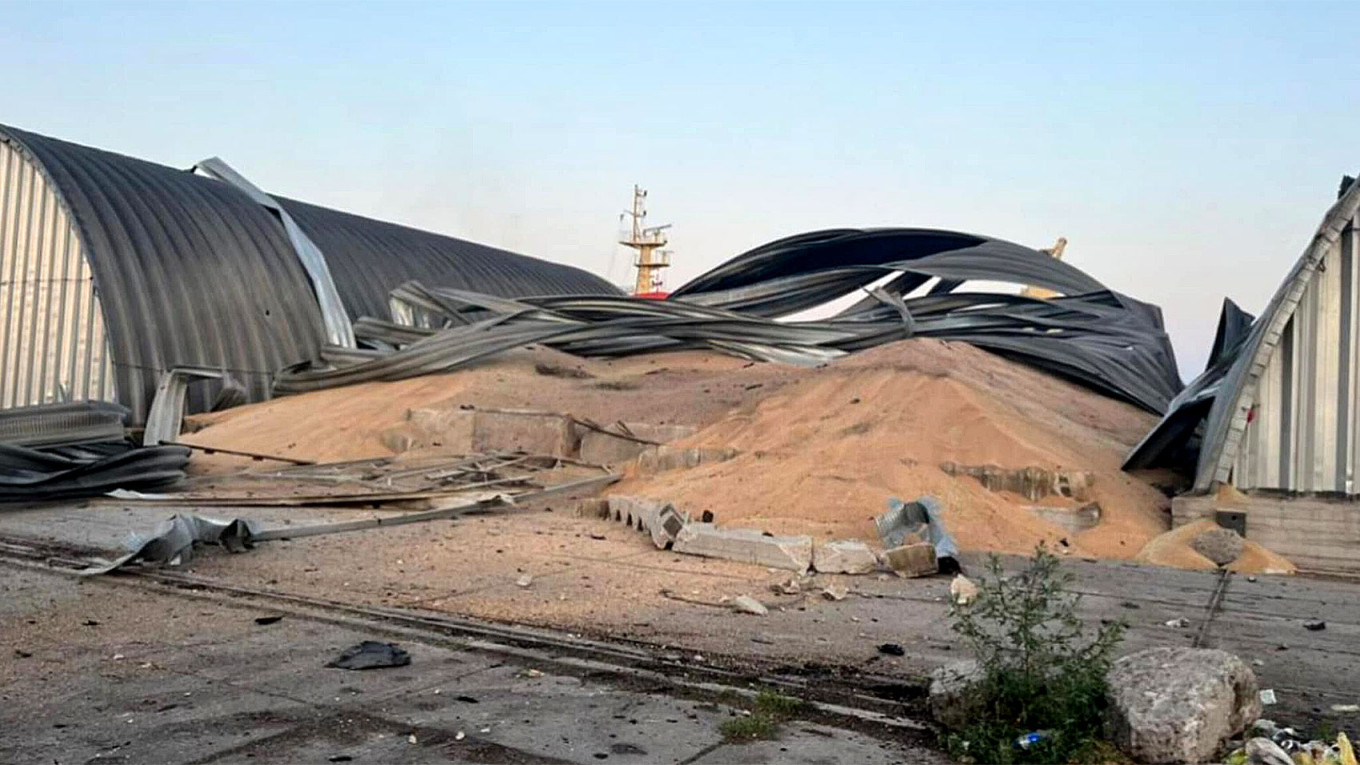
In addition, the Kremlin now seeks to bolster Russia's image as a "friend of Africa," Boris Bondarev, a former diplomat at Russia's UN mission in Geneva, the only one to publicly resign over the Ukraine war, told The Moscow Times.
Russia is expected to position itself as a leading food supplier for African countries, which have been acutely impacted by the global food crisis set off by the war in Ukraine, at this week’s Russia-Africa Summit in St. Petersburg.
The attack on Ukraine's Black Sea ports after the grain deal withdrawal was expected, but not critical for Ukraine, as food and fertilizer exports represent 10% of its GDP.
Since 2022, Kyiv has been modernizing its terminals on the Danube, which allowed it to smoothly deliver freight directly to Turkey, Greece and other countries without the need for its blockaded Black Sea ports, said Andrei Sizov, a leading Russian expert in the agriculture and food industry.
However, Russia’s drone attacks on the Danube terminals of Reni and Izmail could dramatically limit Kyiv's export options.
"In our view, this is a bigger event than the predictable attacks on Odesa,” Sizov said on Twitter. “The Danube is a key export route with a monthly throughput of over 2 million tons. This time they are really trying to limit Ukrainian exports."
The deal may no longer be as important for Erdogan now that he has won re-election, but there is still a possibility that he will attempt to revive it, says Suleymanov.
The Carnegie Politika analytical publication said that Erdogan will likely try to change Putin’s mind during their planned meeting in August.
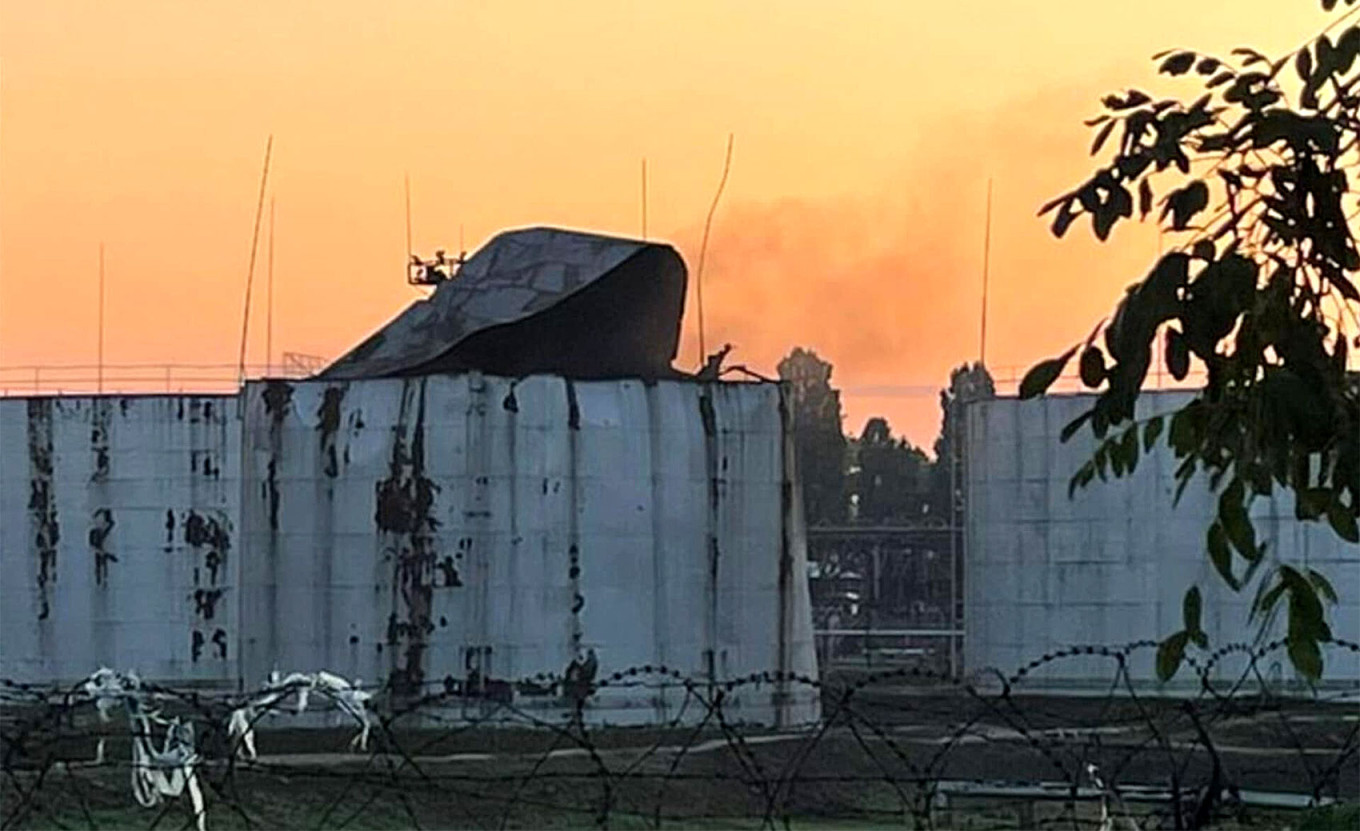
Many parties remain interested in the deal, including Ukraine, the UN, countries in Africa and the Middle East, and the West, so there is still a chance it could be revived, David Sharp, an expert on the Israeli military, told the Moscow Times.
However, Ukraine's tolerance for risk will continue to grow as long as its civilian infrastructure is hit nearly every day, as evidenced by the strikes on the Crimean bridge, said Alexander Gabuev, director of the Carnegie Center for Russian and Eurasian Studies in Berlin.
"There is not much faith in Ukraine [in the sense] that it is possible to agree on some rules of escalatory behavior,” Gabuev said. “As the Russians attack civilian infrastructure, [Ukraine] will continue to attack … there is nothing to lose. This kind of spiral can be dangerous because, as the whole course of the conflict has shown, the country has conventional means of escalation.”
While the Black Sea has been a conflict zone since the start of the war, there is now an elevated risk of a confrontation with non-military vessels, as Moscow and Kyiv have warned that they will consider vessels entering each other’s ports to be military carriers.
“From the point of view of dangers and risks, the situation has changed for the worse,” Sharp said. “There are no more safe geographical and temporary corridors.”
A Message from The Moscow Times:
Dear readers,
We are facing unprecedented challenges. Russia's Prosecutor General's Office has designated The Moscow Times as an "undesirable" organization, criminalizing our work and putting our staff at risk of prosecution. This follows our earlier unjust labeling as a "foreign agent."
These actions are direct attempts to silence independent journalism in Russia. The authorities claim our work "discredits the decisions of the Russian leadership." We see things differently: we strive to provide accurate, unbiased reporting on Russia.
We, the journalists of The Moscow Times, refuse to be silenced. But to continue our work, we need your help.
Your support, no matter how small, makes a world of difference. If you can, please support us monthly starting from just $2. It's quick to set up, and every contribution makes a significant impact.
By supporting The Moscow Times, you're defending open, independent journalism in the face of repression. Thank you for standing with us.
Remind me later.



